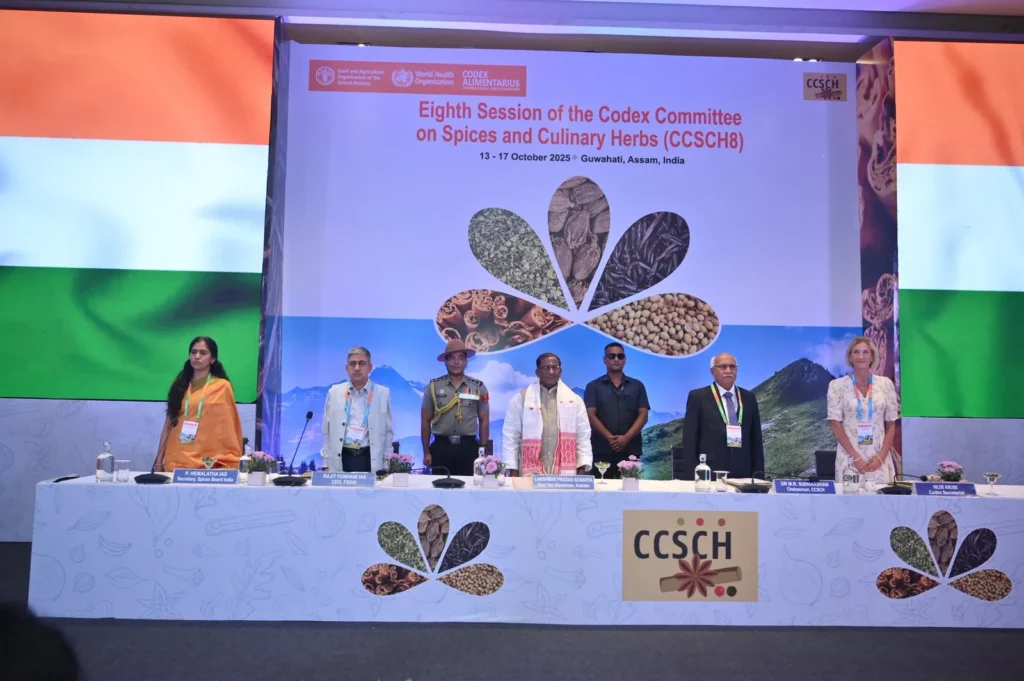India strengthens spice standards, boosting exports and global trade at the Codex Committee’s 8th session.

India is reinforcing its leadership in the global spice sector as the 8th Session of the Codex Committee on Spices and Culinary Herbs (CCSCH) commenced in Guwahati, Assam, on 13th October. Organised by the Spices Board under the Ministry of Commerce and Industry, the event brings together 81 delegates from 27 countries to discuss harmonised international standards for spices and culinary herbs.
In his inaugural address, the Governor of Assam, Shri Lakshman Prasad Acharya, highlighted the Northeast’s rich biodiversity and agricultural heritage. He said the session would open avenues to elevate quality standards, strengthen a safe and sustainable food system, and expand the region’s potential as a spice hub, driving export promotion and higher farmer incomes.
Shri Acharya added, “The joint efforts of the Government of India and the Spices Board have strengthened India’s spice value chain, aligning domestic standards with global benchmarks, ensuring food safety and quality for consumers worldwide.”
P. Hemalatha, Secretary, Spices Board, emphasised the cultural and trade significance of spices, saying, “Spices such as black pepper, cardamom, turmeric, cinnamon, and cloves represent not just flavour but the cultural essence and heritage of civilisations. Harmonised and science-based global standards are vital for safety, fairness in trade, and consumer trust. Codex standards ensure transparency, efficiency, and sustainability across the global spice industry.”
Rajit Punhani, CEO, FSSAI, highlighted the economic impact, noting, “The global spice industry, valued at USD 28.5 billion in 2024, is projected to reach USD 41.9 billion by 2033. Harmonised, science-based standards are crucial to ensure consumer safety and promote equitable trade.”
The session will focus on developing new standards for large cardamom, sweet marjoram, cinnamon, and dried coriander seeds, building on Codex’s prior standards for 16 spices, including pepper, turmeric, cumin, nutmeg, cardamom, and saffron. Discussions throughout the week aim to enhance transparency, align global standards, and promote sustainable trade practices, cementing India’s role as a global spice leader.
Source: PIB











